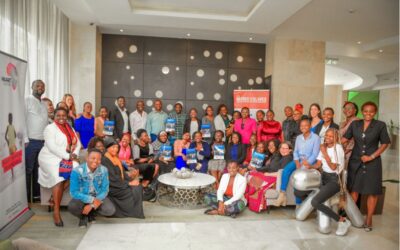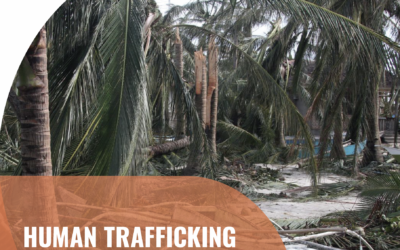On this International Day for the Abolition of Slavery, two of the world’s leading antislavery institutions are proud to announce a new partnership to merge research, community activism and global advocacy.
Free the Slaves, headquartered in the U.S., and the Rights Lab, based at the University of Nottingham in the U.K., will work together as active change agents by creating conditions that foster collective action to help bring an end to modern slavery.
The new team will work with local communities to understand what works to prevent and/or end modern forms of slavery, pioneering new antislavery techniques to support this understanding, and engaging in research that can inform policy and practice.
The Rights Lab will support Free the Slaves to develop its community-based research capacity through the development of new antislavery tools and ways to apply those tools, alongside providing advice, guidance, training and mentoring support around data and research methods.
Free the Slaves will support the Rights Lab to test its antislavery data methods and tools in countries where it operates, and will facilitate collaboration with its in-country partners.
The two organizations will collaborate on plans to expand the annual Freedom from Slavery Forum as a movement-building initiative that strengthens civil society’s capacity to confront modern slavery.
“Today’s announcement is an expression of our common determination to eradicate modern slavery around the world,” said Free the Slaves Executive Director Bukeni Waruzi. “Free the Slaves, a leader of the modern antislavery movement, is delighted to join forces with the University of Nottingham Rights Lab to achieve that goal. Research and innovation in modern slavery are critical aspects that will strengthen local communities to be more resilient and resistant to modern slavery and thus change the conditions that allow modern slavery to exist.”
“The Rights Lab has long admired the world-leading work of Free the Slaves, with its focus on empowering at-risk communities,” said Rights Lab Director Zoe Trodd. “Our own focus includes research on how to create resilience to slavery in a community-based way. We were thrilled to begin our first major joint project with Free the Slaves this year, funded by U.K. Research and Innovation. That project is about building local resilience to slavery after the COVID-19 pandemic, and includes innovative action-research with Free the Slaves in Senegal and Kenya. We’re thrilled to build on this joint work. Partnership is key to the global antislavery movement; we won’t reach the 2030 Sustainable Development Goal of ending modern slavery without it. During the 20th anniversary year for Free the Slaves and at the moment when we enter the ‘decade of delivery’ for the 2030 goals, I am really excited that the Rights Lab and Free the Slaves will be working together.”
About the Partnering Organizations:
Free the Slaves is a leading organization in the modern antislavery movement and is dedicated to changing the conditions that allow modern slavery to exist. Through innovative programs, it works at the grassroots level to build resilient communities that can resist modern slavery, and bring that knowledge to inform and lead antislavery advocacy at the global level.
The Rights Lab at the University of Nottingham is the largest and leading group of modern slavery researchers in the world. It works in close partnership with NGOs, survivor groups, businesses and the policy community on new research discoveries, intervention techniques and rigorous evaluation processes.



